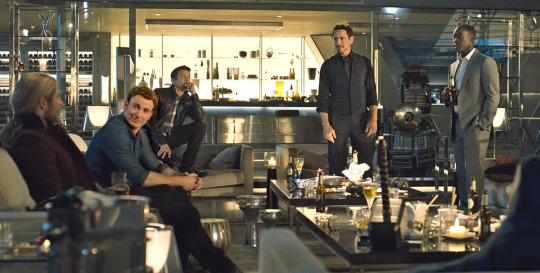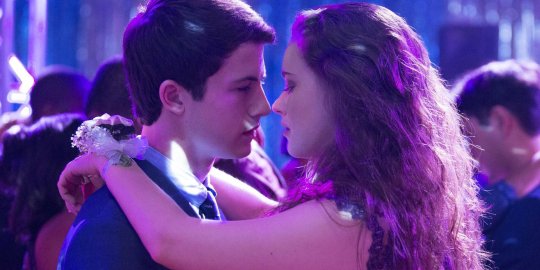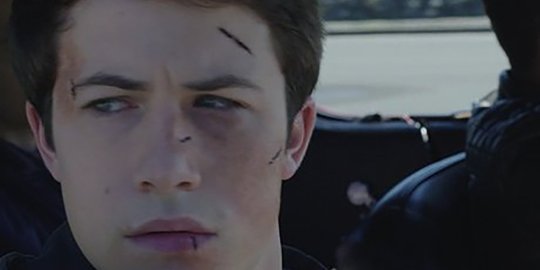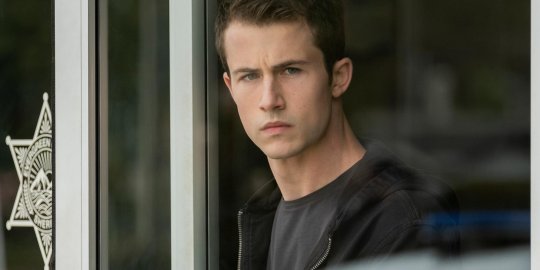#he also stopped conducting cause apparently we dont need it
Explore tagged Tumblr posts
Text
band director made us play standing up today I'm literally gonna throw something at him
#he also stopped conducting cause apparently we dont need it#sir if we had our shit together we wouldnt need the met less than a week before the concert#if we had our shit together we would know the rythm to our songs less than a week before the concert#if we had our shit together we would be able to play full way through all of our songs less than a week before the concert#our shit is not even remotely together#post posting#also he was like#clarients make sure youre coming in on time#id be more likely come in on time if you conducted bro#this song is in 5/4 and has stuff ive never seen in my life like dotted half rests#why is there a dotted half rest there why would you do that#honestly his conducting for this particular piece doesnt help cause he conducts is 4/4#which makes no sense??#why wpuld he do that#i do not know#so i just count it whuch is usually fine#but for whatever reason my ability to count goes out the door when im standing#thats why i hate marching band#i literally cant count im too focused on the cramp in my thumb#its fine when we're sitting like i have no issues#but its less than a week vefore the concert!!#we need to focus more on getting fine details down than playing standing up for no reason#we have a song he literally gave us last friday that we're playing at the concert next thursday#we only worked on like half of it so far#he needs to get it together oh my god
4 notes
·
View notes
Text
A Game
Summary: Tony suggests a game that you, the unfortunate intern, get dragged right into the center of: who can make a woman cum the fastest?
Pairings: all dark!: Steve x Reader, Bucky x Reader, Thor x Reader, Sam Wilson x Reader, Tony x Reader, implied natasha x reader
Warnings: DUB-CON/NON-CON (oral: f-receiving, fingering, tiny smidge of analplay) VOYEURISM/EXHIBITIONISM, BLACKMAILING, OVERSTIMULATION. The characters in this story are NOT good people. After reading the warnings, your media consumption is your own responsibility!

As Stark’s party mellowed down and all the guests left, you, the unfortunate intern, were called over to the small group of five Avengers seated in a section of couches.
“Y/n, come!” Thor’s voice boomed.
“Y/n, come!” Sam mimicked, deepening his voice to make fun of Thor’s.
You approached them as the men snickered at Sam’s joke.
“What can I do for you?” you ask, a fake smile plastered on your face.
Stark cleared his throat and raised a brow at you; a silent command.
“What can I do for you, sir?”
“A round of drinks please, and add this to Sir Barnes, Sir Rogers, and I’s drinks.” Thor handed you the flask of his Asgardian liquor and you accepted it, hiding the slight nervous tremble of your hands.
“Of course, sir.”
“Someone’s been learning their manners,” Steve taunted, and it took all your restraint to not snarl at him.
“Easy there, Rogers,” Stark interjected, noticing how your fingers clenched Thor’s flask tighter. “Pretty sure Barnes fucked the brat outta her couple days ago when he came back from that shitshow of mission in Bosnia. Got a lot of pent up rage there, Buck?”
“Mission just put me in a bad mood,” Bucky shrugged. “Either way, I don’t think I fucked all the brat outta her. Got anything left for me, doll?”
“I have nothing for you, you self-righteous, ignorant prick,” you spat venomously.
“There she is. I always love a challenge.” Bucky smirked at how your knuckles were turning white around the flask. “Now didn’t Thor ask you to go fetch us some drinks?”
You huffed, opting to bite your tongue rather than lashing out, and spun on your heel toward the minibar.
Three-months ago, you would never have imagined your internship interview at S.H.I.E.L.D to bring you here. Your interview had been conducted by Captain America himself, and just as things began to look promising, it was interrupted by a sharp knock from Tony Stark. Tony had brought Steve into the hall, leaving the door to the conference room open, and you could only sneak glances through the window of the room, hearing Steve whisper about how it was “a question of morality” while they both kept looking back at you.
You got the position, and the next day, Tony sat you down and gave you an offer.
The Avengers needed to be ‘taken care of’, as he put it, and you being a ‘stress-reliever’ would boost morale around the team. Most of the them never had time for the outside world (apparently saving the world was a big commitment?) and were rarely ever able to make lasting relationships. You could accept the position, be compensated monthy, and get to live in the compound, or you could decline, and walk away with your mouth sealed by the confidentiality contract you signed before the interview. Something about S.H.I.E.L.D. work being linked to a lot of top secret information, meaning you weren’t allowed to speak any details of the job to outside parties unless you wanted to get sued for every penny you were worth.
You had been on the cusp of taking the second option before Tony mentioned your sister’s job as S.H.I.E.L.D. as an agent. She was half the reason you’d interviewed for an internship. A couple words from Tony about her possibly falling into a fatal accident on a mission, and you took the position offer in a heartbeat.
You almost overfilled the glass while getting lost in your train of thought. Setting down the bottle of expensive whiskey, you placed the last glass next to the others on the silver tray, and picked it up, gracefully yet begrudgingly making your way back to the small gathering.
“Y/n, finally. We were just talking about who here can make a woman cum the fastest.”
The complete utter bluntness of Tony’s words caught you entirely off guard, and you tripped over your own feet, stumbling in your high heels to keep the tray of drinks from falling before Sam reached an arm out to catch the tray and another arm to hold your hip and steady you.
You ripped yourself from Sam’s touch without acknowledging or thanking him, to disturbed by Tony’s previous words to do so. You began passing out the glasses of dark liquid. “And you’re telling me this why?” Your voice was flat in hopes of showing Tony you were completely disinterested in any plans he might have.
“Why, we need your aid, Lady Y/n,” Thor answered a little too cheerfully for your taste.
“I won’t be partaking in your little immature competition of toxic masculinity.” You crossed your arms and continued. “It makes it seem that women are nothing but prizes. Games to be played by boys as they fight over the highscore. Toys.”
“Aren’t they?” Steve cocked his head, eyes glimmering with amusement while a smirk painted his face. The rest of the men chuckled at his reply.
“I think HR would be shocked to hear that Captain America is being a sexist dick to a woman in the workplace,” you bit back, but your threat was weak and they all knew it.
“I think HR would be to busy writing a condolence letter to your sisters family if, let’s say, on her mission with Sam tomorrow in Russia, a stray bullet hit her,” Steve replied. A quick reminder at the stakes.
Sam clicked his tongue and shook his head in mock sympathy. “Those darn Russians and their careless aim.”
He abruptly pushed himself off the couch and clapped his hands together. “I wanna go first,” he declared.
“Just remember, you can’t use your dick,” Tony added. “Some of us don’t have super soldier serum enhanced fuckwands.”
“Please never, ever say fuckwand again,” Bucky said, scrunching up his nose. “Besides, the hydra serum didn’t do anything down there.” He waggled his eyebrows while elbowing his enhanced counterpart. “Don’t think I could say the same for this punk here though.”
Steve muttered a ‘shut up’ while the group snickered.
All while they compared sizes like a bunch of teenagers, Sam manhandled you onto the coffee table in the center of the couches. You let out a grunt as you were shoved onto your front, stomach pressed into the tabletop while your pelvis was slammed into the edge.
Sam kneeled behind you and brought up two fingers to your mouth.
“Get ‘em nice and wet for me, baby.”
The men around you went quiet, entranced as you reluctantly took Sam’s fingers into your mouth, sucking on them and swirling your tongue around them.
When Sam finally pulled them out, he looked back at Tony.
“You ready?” Sam asked.
Sam hiked the flowy skirt of your dress up your legs causing you to squirm and pathetically thrash; a desperate attempt at putting an abrupt stop to this stupid game.
“You’re on the clock.”
At Tony’s words, Sam immediately stopped your desperate attempt at worming away from him by catching you by the back of your neck and slamming you back down hard on the coffee table. Much to your disdain, the rough treatment made you wet, and that was the last thing you wanted them to see.
But when Sam pulled your lacy panties down, you could tell it was the first thing he noticed.
“Fuck babygirl, I didn’t need you lubing up my fingers, you’re already drenched,” he noted.
You let out a soft moan as Sam worked two calloused fingers into your pussy. Although they’re thick and long, they were nowhere near the size of his dick and you silently thanked whatever was out there that he wasn’t splitting you in half with it at the moment. Sam released the grip on your neck, moving to settle the hand on your ass before giving it a light squeeze and a slap that elicited another moan from you. While Sam slowly began moving his fingers- twisting, curling, and pumping them- he leaned over you, caging your body under his broad chest, to speak dirty words into your ear.
“Baby, you’re so wet right now, I think you like having them watch you.” Your cheeks burned in shame while he picked up the pace. “You want them to see how well-behaved you are for me? Want them to see how you come on my hand like a good little slut?” he cooed.
Slow pumps now turned to quick thrusts from his skilled fingers and Sam groaned as you fluttered around him.
“That’s it. You’re taking me perfectly.”
Twisting his wrist so his thumb could also strum your clit, Sam was moving so fast you’d easily mistake him for a superhuman.
“Yes, Sam, please,” you cried out, eyes rolling into the back of your head.
“Uh-uh, babygirl. Wrong word,” he scolded, although his pace never slowed as his fingers brutally fucked into you.
“Daddy!” you screamed. “I’m cumming!”
You chanted those words, cunt clamping down on his merciless fingers. He gave you no reprieve, mercilessly thrusting into you, until you squirted, your release coating his hand and dripping down his forearm. Only when you were almost crying, did he finally remove his hand from your abused cunt.
“Now that-,” Sam stated, grinning while he stood. “-is how you make a girl come.”
“Yeah, sure, whatever Birdbrain.” You don’t have any strength to look at Tony as he speaks. “Give her a couple minutes before whoever’s next.”
Whatever the conversation was between them (you couldn’t hear it over the buzzing in your brain), it was much too short to your liking. The few minutes Tony gave you only felt like a few seconds before Bucky was getting up.
“Guess I’ll take a crack at it,” he announced, rolling his head from side to side.
“No one says “take a crack at it” anymore, old man.”
“Keep talking when your in last place, Sam,” Bucky quipped, however, his tone was still light.
You felt a metal hand on your hip before you were rolled over onto your back, now facing Bucky while your eyes pleaded with him.
“Please dont,” you croaked.
Bucky just scoffed, kneeling down between your legs and wrapping both arms around your thighs as he pulled you closer.
“Tony?” His hot breath fanned your pussy as he spoke and you inhaled sharply at the feeling.
“Whenever you’re ready,” Stark said.
Bucky wasted no time the moment the words left Tony’s mouth. He started by licking up from your hole to clit over and over, the lazy stripes already driving you wild. Letting go of one of your thighs to bring his flesh hand to your pussy, he pulled the hood of your clit back, pausing his licking to blow on your engorged bud.
“Such a pretty pussy, doll,” he murmured before turning his head around and speaking louder. “You guys seeing this?”
He moved his head out of the way to showcase your glistening folds. A couple groans from the men on the couches had you trying to close your legs, but Bucky’s grip was like steel (especially considering his hand was metal).
“Wasting time Buck,” Steve commented and Bucky just rolled his eyes.
“I’m pretty sure I can still beat Sam and have time left over,” he scoffed.
Bucky directed his attention back to your folds, this time, diving in right away. He still had the hood of your clit pulled back as he encased the bud with his lips causing you to writhe at the intense sensation. And yet, you were held down with practically no effort as he methodically played with you. Each time he groaned against you, you let out an embarrassingly loud moan, and by the time he started sucking on your clit, you were wrecked. Your hand found home in his brown locks of hair while he quickly moved his tongue back and forward on your sensitive nub that was trapped in the vacuum of his mouth. The coil inside you wound tighter and tighter, and suddenly, while Bucky began shaking his head from side to side, it snapped. Your clit pulsed rapidly while encased in his hot mouth, and you screamed, legs locking around his head while your hand held his head in place. He worked you while you rode out your orgasm on his face until you could barely move.
Bucky got up from his knees, grinning down at you, so weak, you couldn’t muster it in you to glare back.
“Now I think I really fucked the brat out of you,” he said. “What was that?” He cupped his ear. “Did I hear a thank you sir?”
“Thank you, sir,” you whimpered weakly.
You were so fucked out, all the next events were but a blur.
Thor had feasted between your thighs the same as Bucky but was more sloppy, although, your body seemed to love ‘sloppy’. His tongue was constantly lashing and worming around your clit, the wet muscle accompanied by lewd slurping sounds, and in record time, Thor’s suckling and licking had you tensing and building up so much that your orgasm felt like a waterfall crashing over your body.
Steve was just as methodical and precise as Bucky, also pumping his fingers slowly in and out of your pussy. He was sweetly slow, dragging out your pleasure to the point where you were begging him to come. His warm tongue dragged across your sensitive cunt, while another hand reached up to grab a breast and pinch a nipple. You felt like your body was on fire. It wasn’t until Steve had inserted a thumb into your ass that he finally allowed your body sweet sweet release.
Your head span as finally collapsing on Tony’s floor, listening to the muffled voices above you.
You didn’t even register Stark’s words as he announced Thor had won and Steve had come in last. You barely even heard Steve’s defense that he was just enjoying himself too much in the moment.
Although ten-minutes later you had a somewhat sense of clarity, after hearing their conversation, you wished you were just unconscious. Even better, dead.
“I’m tellin’ you man, I made her squirt. She definitely came the hardest with me.” Sam’s voice rang.
“Dude- she was literally grinding against my face and holding me in a headlock with her legs,” Bucky argued.
“I literally made the brat beg to cum,” Steve inserted.
“I’d say that by bringing her to release the fastest, it was most intense with me,” Thor declared, victoriously.
You were on the brink of tears as they talked about you. Until another voice cut into the room. A female voice.
“What do you boys think you’re doing?”
It was Natasha. Your head jolted up as you felt a glimmer of hope surge through you.
That glimmer of hope was quickly extinguished at her next words.
“Not inviting me to the boy’s party?” she scolded. “You think a girl might beat you by a landslide?”
Nat squatted down next to you, running a soft hand on your cheek.
“Well you’re right. I’ll beat Thor’s record and cut it in half.”
She began unbuttoning her pants.
“And I’ll do it while riding her face.”
#sam wilson x reader#bucky barnes x reader#thor x reader#steve rogers x reader#dark!sam wilson#dark!steve rogers#dark!bucky x reader#dark!tony stark#dark!natasha x reader#dark!sam wilson x reader#dark!thor#dark!steve smut
2K notes
·
View notes
Text
13 Reasons Why: 10 Things We Don’t Like About Clay | ScreenRant
Teen drama 13 Reasons Why broke onto the scene in 2017, causing controversy thanks to its graphic depictions of rape and suicide. But the series has continued to go strong with fresh, new storylines each season, including in its latest third which was just released on Netflix on August 23, 2019.
While some characters have come and gone, one who remains central to the story is Clay Jensen, played by Dylan Minnette. In season 1, Clay was a close friend to Hannah, the central character to the story who sent tapes to those she blamed for driving her to commit suicide. In season 2, he fought dutifully for Hannah’s honor, trying to do right by her in the wake of her death, then put himself on the line to stop Tyler from conducting a school shooting. And in season 3, he found himself central to the drama once again as Bryce, the young man who raped Hannah, is found dead.
RELATED: Every Song In 13 Reasons Why Season 3
There are some things to truly love about Clay, such as his steadfast dedication to his friends, his determination and will to fight for what he believes in, and his clever and smart personality. But there are also lots of things we really don’t like about him.
*Spoilers for season 3 of 13 Reasons Why below*
10 He Becomes Easily Obsessed With Girls

Clay is your typical shy teenage boy, although he seems quite comfortable in his own skin as the book smart nerdy type who doesn’t really fit into any clique and is accepting of that. Yet he seems to have a hard time expressing his feelings to girls he likes, then gets obsessed with them.
We saw it with Hannah when Clay clearly pined for her yet wouldn’t make a move, then jealously watched her flirt with and get involved with other boys. And the same happened with Ani in season 3 as he focused on their friendship even though he clearly had romantic feelings for her, then became enraged with jealously when he found out about her and Bryce, or when she and Zach shared friendly and flirty conversations.
9 He Never Makes The First Move

As noted above, Clay pines in silence for girls he is interested in, like Hannah and Ani, yet does nothing. He constantly backtracks when he feels any potential for rejection, which is completely contrary to the way he behaves in any other scenario.
Even when the girls drop subtle hints like Ani’s mention of never having been asked to a dance before, he chickens out or doesn't pick up on them. We get it if Clay is naturally a shy person. But he clearly has no issues speaking up in any other circumstance, and is very perceptive otherwise. So why not with girls?
8 He Thinks He Can Save the World

Clay has a sort of God complex in that he thinks he can, and should, save everyone. He tried to do it with Hannah when she was alive, and even more so after she was dead. Then when Tyler was in trouble, he took him on as a project, convinced he could save the troubled and bullied boy who clearly needed, and still needs, some professional help.
When it comes to crimes, Clay fancies himself some type of sleuth detective, riding around on his bike (in season 3, finally a car) chasing down what he believes to be truths, and stopping at nothing to find them. We appreciate the determination, but sometimes he takes it too far.
RELATED: 13 Reasons Why: 15 Things Fan Choose To Ignore About The Show
7 He Takes Dangerous Risks

For someone who’s afraid to ask a girl out on a date, Clay sure has no fear when it comes to standing up to a guy holding a gun to his face, or charging at a burly football player who could probably take him down with one hand.
Clay is a smart guy, yet he makes really dumb moves sometimes that, outside of the fantasy world of television, would have almost definitely landed him in serious trouble, and injury. Yet Clay somehow always appears to emerge unscathed.
6 He Does Stupid Things Sometimes

Clay tends to react quickly without thinking, doing things that he might later regret because he believes them to be right at the moment. His death threat texts to Bryce are a perfect example, along with his visit to Bryce’s home, gun in hand.
Then, in season 3, faced with accusations of killing Bryce, he decides to run away but changes his mind when Tyler tells him he needs him, again believing that he needs to save the world and things could go horribly wrong if he's not there. Clay might be book smart, but he really needs to work on his street smarts and realizing that the world doesn't revolve around him.
5 He Has Little Confidence In Himself

Clay seems like a young man who is self-assured, yet he also conversely appears to have little confidence in himself. It’s apparent with his views about girls, but he also talks down about his body or his abilities as a friend or romantic partner.
He’s headstrong, yet deep down, there are insecurities there that might cause him to act out in anger. Maybe this is why he consistently tries to save everyone else, as he sees it as a way to justify his own existence.
RELATED: 10 Riverdale Moments That Topped Our Cringe-Meter
4 He Has a Jealous Streak

Ironically, while Clay has issues declaring his feelings for girls, that doesn’t stop him from getting jealous when they look elsewhere for love. We can understand his anger when he found out about Ani and Bryce, as that went deeper than just jealousy. Bryce is the man who caused all of the anger and pain for Hannah, so it’s understandable that he’s the last person Clay would want to see Ani romantically involved with.
But he seemed upset whenever Hannah hung out with people other than him as well, or when Ani didn’t want him to drop her off close to the house. Sometimes, Clay can be far too uptight and needs to loosen up a bit.
3 He’s Rarely Nice To His Parents

Clay’s interactions with his parents are usually fleeting as he is rushing off to school or to do something he’s lying to them about, like spy on someone or investigate something. His parents seem like genuinely nice and caring people, yet Clay treats them as if they are in the way most of the time.
Not only did his parents build Clay his own space in the guest house, but they opened their home to his fellow classmate, a drug addict Justin who’s druggie mother abandoned him. Then they hired a lawyer to help defend Clay when he was accused of murdering Bryce without once second-guessing their son's innocence. It seems Clay should give them a bit more credit and attention. Then again, he is just a teenage boy, and that’s kind of what they do.
2 He Likes To Get In Everyone’s Business

No matter what’s going on, rest assured Clay will show up in some capacity, whether the situation has anything to do with him or not. He’s constantly following people, checking up on them, and sticking his nose where it doesn’t belong in a desperate attempt to find out a truth.
A fight breaks out in the school hallway, Clay is there. A secret kiss, Clay is lurking at the sidelines. A drug hand-off? Rest assured Clay will find out or will somehow see what’s going on. Doesn’t this kid have anything else to do?
1 He Refused To Call Justin a Friend or Brother (At First)

While Clay later warmed up to Justin, in one episode, he basically told someone that Justin was simply living at his parents’ house and sharing a room with him. He refused to call Justin a brother, or even just a friend.
Later, the two did share some “I love you, bros” but mostly prompted by Justin who wasn’t afraid to express his gratitude. Clay often hides his emotions, and Justin, who wears his heart on his sleeve, could have really used hearing those brotherly words earlier on.
RELATED: 10 Teen Shows We Want a Reboot of More Than Beverly Hills 9021030
source https://screenrant.com/13-reasons-10-things-dont-like-clay/
0 notes
Link
The annals of business history are full of tales of companies that once dominated their industries but fell into decline. The usual reasons offered—staying too close to existing customers, a myopic focus on short-term financial performance, and an inability to adapt business models to disruptive innovation—don’t fully explain how the leaders who had steered these firms to greatness lost their touch.
In this article we argue that success can breed failure by hindering learning at both the individual and the organizational level. We all know that learning from failure is one of the most important capacities for people and companies to develop. Yet surprisingly, learning from success can present even greater challenges. To illuminate those challenges—and identify approaches for overcoming them—we will draw from our research and from the work of other scholars in the field of behavioral decision making, and focus on three interrelated impediments to learning.
The first is the inclination to make what psychologists call fundamental attribution errors. When we succeed, we’re likely to conclude that our talents and our current model or strategy are the reasons. We also give short shrift to the part that environmental factors and random events may have played.
The second impediment is overconfidence bias: Success increases our self-assurance. Faith in ourselves is a good thing, of course, but too much of it can make us believe we don’t need to change anything.
The third impediment is the failure-to-ask-why syndrome—the tendency not to investigate the causes of good performance systematically. When executives and their teams suffer from this syndrome, they don’t ask the tough questions that would help them expand their knowledge or alter their assumptions about how the world works.
Lessons from Ducati
We began to examine the challenges of learning from success in 2004, when we did a case study of an organization with a long history of winning: the Ducati Corse motorcycle racing team. Motorcycle racing may seem a long way from the world of business, but in fact it provides a perfect laboratory for research on learning. Performance is unambiguously measurable by lap times and race results. You know with brutal precision whether you’re getting better or worse. Racing is also unforgiving. The race is Sunday, and it won’t wait if you’re late. Finally, the racing circuit is intensely competitive: During a season a dozen world-class teams battle each week for the top spot. For an organization like Italy’s Ducati, wins have a huge impact on brand equity and commercial bike sales.
In 2003, Bologna-based Ducati entered the Grand Prix motorcycle racing circuit (or “MotoGP”) for the first time. Being a newcomer, it approached 2003 as “a learning season,” its team director told us. The goal was to acquire knowledge that would help it develop a better bike for future seasons. To that end, the team fitted its bikes with sensors that captured data on 28 performance parameters (such as temperature and horsepower). Riders were debriefed after every race to get input on subjective characteristics like handling and responsiveness. The team looked like a model learning organization.
Then something unexpected happened: The rookie team finished among the top three in nine races and was second overall for the season, and its bike was the fastest in the field. But with each success the team focused more on winning and less on learning, and it ended up analyzing little of the data it collected. As one team member commented, “You look at the data when you want to understand what’s going wrong. You do not look at the data because you want to understand why you’re performing well.”
The successful season caused the team members to believe Ducati could win it all in 2004. After all, if they could finish second as rookies, why shouldn’t they take first now that they had some experience? This confidence manifested itself in the decision to radically redesign the team’s bike for the 2004 season rather than incrementally improve the 2003 model.
More than 60% of the 2004 model’s 915 components were new. But at the outset of that season, it became apparent that the bike had serious handling problems and that the team had made a big mistake in changing so much at once without giving itself the time to test everything.
Interestingly, the team still finished third overall that year—thanks to extensive experiments it conducted to understand the causes of the bike’s problems. Though third place wasn’t bad, it was viewed as a failure, given the high expectations. And this disappointment then triggered a comprehensive and ultimately quite effective reexamination of the team’s approach to developing bikes. (One big change was to have the engineering group begin developing the bike for the next season much earlier, so it could be thoroughly tested before being raced.) The team turned in solid performances in the 2005 and 2006 seasons and took the world title in 2007. In short, success led the Ducati Corse team to stop learning, and only perceived failure caused it to start again.
Success led the Ducati racing team to stop learning, and only a perceived failure caused it to start again. After its disappointing third-place finish, the team reexamined its approach to developing bikes.
After studying Ducati, we went on to conduct research in the entertainment, pharmaceutical, and software industries and performed experiments in the laboratory and in executive education classes. Again and again, we saw the same phenomenon. Ultimately, we recognized that there was a common cause: the three impediments to learning.
Making Dangerous Attribution Errors
In racing, many interdependent factors affect outcomes. Without a detailed analysis, it was impossible to know whether the Ducati team’s performance in 2003 was due to its bike design, its strategy for particular races, its riders’ talents and decisions, bad choices by other teams, luck, random events like the weather or crashes, or some complex combination of all those things. And without such knowledge (and given Ducati’s long history of winning in other venues), it was too easy to attribute the team’s excellent performance to the quality of its decisions, actions, and capabilities.
In business, likewise, any number of factors may lead to success, independent of the quality of a product or management’s decisions. Yet it is all too common for executives to attribute the success of their organizations to their own insights and managerial skills and ignore or downplay random events or external factors outside their control. Imagine, for instance, that you are leading a team whose numbers are great: It’s tempting to credit yourself or your team’s actions for that achievement, though it may actually just be a stroke of good luck or the result of your competitors’ problems.
Research (including a classic study by the psychologists Edward Jones and Victor Harris) has proved that this is normal human behavior. Moreover, when examining the bad performance of others, people tend to do the exact opposite. In exercises that we conducted in executive education classes at Harvard, the University of North Carolina at Chapel Hill, and Carnegie Mellon University, most participants, when evaluating the success of others, minimized the role of leadership skills and strategy and maximized the role of external factors and luck.
Another study found that people also have trouble adjusting for the difficulty of the situation when judging successes. (See the sidebar “The Challenge of Discounting Easy Successes.”) In business this bias can affect many critical decisions, including whom to hire or promote, which products to launch, and which practices to spread throughout the organization. Someone who has led a thriving business in a highly profitable industry, for instance, often appears more attractive than a similarly skilled or even more qualified candidate who has struggled to lead a firm in an industry in which most companies are failing.
We repeatedly observed pharmaceutical companies making these kinds of attribution errors in choosing which drugs to kill or push forward. They selected drugs whose initial tests were successful as potential winners and allocated more money to them for further testing and development. But often managers assumed a success was due to the unique abilities of their in-house scientists and didn’t consider whether it could be due to greater general knowledge in that particular scientific area, which competitors might have, too.
In addition, we found that long lead times can blind executives to problems with their current strategies. Again, consider the pharmaceutical industry. Because it takes 12 years, on average, to get a drug from discovery to market, a company’s performance today has relatively little to do with its most recent actions and decisions. Yet both managers and investors often attribute today’s high performance to the company’s current strategy, management, and scientists.
Falling Prey to the Overconfidence Bias
Without some confidence, we could not make decisions or tackle any kind of risky endeavor; we would be constantly second-guessing ourselves. That said, too much confidence can be a problem, and nothing inflates confidence like success. Take Alan Greenspan, who until the near meltdown of the financial system in 2008 was considered one of the best Federal Reserve chairmen in U.S. history. Afterward, it became apparent that Fed policy makers, led by Greenspan, had placed too much faith in their financial models. In testimony to Congress in October 2008, Greenspan acknowledged his own shock that the models had failed. And, of course, he was not the only one who succumbed to excessive confidence. During the housing boom, many leaders of large and small banks and managers of mortgage lending, investing, and trading operations stopped examining the key assumptions that underpinned the models they were using.
Success can make us believe that we are better decision makers than we actually are. In a simple recent study of managers in various industries, we asked members of one group to recall a time when they experienced a success in their professional lives and members of a second group to recall a time when they experienced a failure. We then asked people in both groups to engage in a series of decision-making tasks and embedded measures in the exercise that allowed us to assess their confidence, optimism, and risk-seeking behavior. Compared with the executives who’d recalled a failure, those who’d recalled a success were much more confident in their abilities, made more-optimistic forecasts of their future success, and were more likely to take bigger bets. These findings are consistent with research examining how success breeds overconfidence in other contexts. (See the sidebar “How Power Causes Us to Ignore Advice.”)
Overconfidence inspired by past successes can infect whole organizations, causing them to dismiss new innovations, dips in customer satisfaction, and increases in quality problems, and to make overly risky moves. Consider all the companies that grew rapidly through acquisitions only to stumble badly after biting off one too many; the countless banks that made ever-riskier loans in the past decade, sure of their ability to sort good borrowers from bad; and all the darlings of the business media that had winning formulas but did not try to update or alter their strategies until it was way too late.
Failing to Ask Why
When you’re confronted with failure, it’s natural to ask why disaster struck. Unfortunately, success does not trigger such soul-searching. Success is commonly interpreted as evidence not only that your existing strategy and practices work but also that you have all the knowledge and information you need. Several studies, as well as our own research, show that most people tend to think this way. (See the sidebar “How Success Makes Us Less Reflective.”)
We have seen the same pattern in the real world. The efforts invested in understanding the causes of the recent financial crash dwarf the efforts that were made to understand why things seemed to be going so well before. In hospitals, doctors conduct rigorous “mortality and morbidity reviews” of cases that ended badly, but little systematic effort is made to understand why patients recover. Even Toyota, which built its vaunted production system around vigorous learning, was much better at uncovering the causes of its problems than of its success. This was revealed by its recent recalls, when its leaders admitted that their success in pursuing higher sales and market share had blinded them to the fact that operations had essentially compromised quality to achieve growth.
A Simple Model of Learning
To avoid the success-breeds-failure trap, you need to understand how experience shapes learning. Learning is, of course, a highly complex cognitive and organizational process, and numerous models have been developed about it in the academic literature. Drawing from those, we present a simplified model that highlights the effect that success and failure have on learning.
We start with the premise that individuals and organizations at any point in time hold certain theories, models, principles, and rules of thumb that guide their actions. Your choices about the people you hire, the projects you fund (or terminate), the features you include in new product designs, and the business strategies you pursue are all influenced by them. Sometimes theories are quite sophisticated and rooted in science or decades of practical experience. But in many other cases, they are pretty informal—and we may not even be aware that they are swaying our decisions.
Learning is the process of updating our theories. In some cases personal experience alters them. For example, Steve Jobs recounted in a 2005 graduation speech at Stanford University how the inclusion of multiple typefaces and proportional spacing on the first Macintosh stemmed from the calligraphy course he took after dropping out of college. But members of an organization also learn together. Experience with both winners (the iPod) and losers (the Newton) has caused Apple, as a company, to update its theories of what leads to successful products.
From this perspective, learning is all about understanding why things happen and why some decisions lead to specific outcomes. This understanding does not come automatically. We make a conscious choice to challenge our assumptions and models. And usually, we do so as the result of a failure. This has been true from the time we first tried to walk or ride a bicycle. We fall down, it hurts, and we try another approach. An amazing number of high-ranking executives report that early failures in their careers taught them lessons that ultimately led to their success. Failure provides a motivation for organizations to learn, too.
But what about success? Success does not disprove your theory. And if it isn’t broken, why fix it? Consequently, when we succeed, we just focus on applying what we already know to solving problems. We don’t revise our theories or expand our knowledge of how our business works.
Does success mean “it isn’t broken”? Not necessarily. The reality is that while a success (or a string of successes) may mean you’re on the right track, you can’t assume this to be true without further testing, experimentation, and reflection. You should use success to breed more success by understanding it. Consider Jobs’s decision to launch the iPhone, learn from that experience, and apply that knowledge to launch the iPad. Jobs and others at Apple were undoubtedly wary of plunging ahead with the iPad first because of the failure of Apple’s Newton tablet in the 1990s. In a brilliant move, they recognized that a touchphone would be easier to launch, given the existing smartphone market, making it the ideal vehicle for Apple to learn about and perfect touch devices.
This example points to a better model for learning, one in which failure and success are on equal footing and both trigger further investigation that helps us revise our assumptions, models, and theories.
Five Ways to Learn
How can you avoid the traps we have discussed? Here are some approaches and strategies that you and your organization can use.
Celebrate success but examine it.
There is nothing wrong with toasting your success. But if you stop with the clinking of the champagne glasses, you have missed a huge opportunity. When a win is achieved, the organization needs to investigate what led to it with the same rigor and scrutiny it might apply to understanding the causes of failure.
Recognize that this may be an uncomfortable process. You may learn, for instance, that success was achieved only by happenstance. A biotechnology company we studied, which faced a serious shortage of capacity to produce an important new product, is a case in point. Just when it appeared that the firm would not be able to meet demand, its leaders discovered that a competitor had put a plant up for sale—a stroke of luck that allowed the company to buy all the capacity it needed. The product launched and was extremely successful. Instead of simply rejoicing in their good fortune and moving on, the company’s leaders revisited why the introduction had gone so well. That review highlighted the part luck had played. And when they examined why the company had been so vulnerable in the first place, they learned that its demand-forecasting and capacity-planning processes were broken.
The search for causes of success may also identify factors that may be hard or even undesirable to replicate. In one project we studied, a group responsible for developing the software for a complex electronic system was so far behind, it risked delaying a strategic launch. By doubling the size of the team and working 80-hour weeks, the group finished in the nick of time. The product was a major commercial hit. Even so, the company wisely conducted a detailed postproject assessment. While lauding the software development team’s dedication, the assessment highlighted critical problems in its process that needed to be fixed.
The military holds “after-action reviews” (AARs) of each combat encounter and combat-training exercise, irrespective of the outcome. As in business, the reasons for success or failure in combat often are not clear. AARs are debriefs that, when used properly, generate specific recommendations that can be put to use immediately. Companies can employ the same process, which is relatively straightforward. Like sports coaches and players who convene right after a game to review a team’s performance, AAR participants meet after an important event or activity to discuss four key questions: What did we set out to do? What actually happened? Why did it happen? What are we going to do next time?
Pixar, which has had 11 hit animated films in a row (and therefore is an organization that would be very vulnerable to the kinds of traps we have discussed), conducts rigorous reviews of the process used to make each of its films. In “How Pixar Fosters Collective Creativity” (HBR September 2008), Ed Catmull, the president of Pixar, confessed that people don’t like to do them and would prefer to just celebrate victories and move on. So Pixar employs various methods to ensure that team members don’t game the system and are engaged in the process. It might ask participants the top five things they would do and the top five things they would not do again. It changes the format of postmortems from time to time. It religiously collects data about all aspects of a production and uses them to “stimulate discussion and challenge assumptions arising from personal impressions” during the postmortems. Finally, it periodically conducts a review across several productions and tries to get someone with an outsider’s perspective (a newly hired senior manager, for example) to head it.
The challenge, of course, is to apply the same degree of rigor whether things are going well or badly. Consider performance evaluations. We all tend to spend much more time reviewing the performance of the employee who is struggling than of the one who is cruising along. However, understanding the reasons behind the good performance of successful employees may bring to light important lessons for others.
Use the right time horizons.
When the time lag between an action and its consequences is short, it’s relatively easy to identify the causes of performance. The problem is that in many cases, the feedback cycle is inherently long. In industries like pharmaceuticals and aerospace, decisions made today about new products or specific technologies to pursue will not bear fruit (or flop) for a decade or more. Unless you have the appropriate time frame for evaluating performance, you are likely to misconstrue the factors that led to success or failure. By understanding the appropriate time dimensions, you can prevent yourself from being “fooled by randomness” (to use Nassim Nicholas Taleb’s famous phrase).
Recognize that replication is not learning.
When things go well, our biggest concern is how to capture what we did and make sure we can repeat the success. Replication is important; we need to spread good practices throughout our organizations. But if the chief lesson from a successful project is a list of things to do the same way the next time, consider the exercise a failure.
If the chief lesson of a successful project is a list of things to do the same way the next time, consider the exercise a failure.
Tools like Six Sigma and total quality management have taught us to dig into root causes of problems. Why not use the same approach to understand the root causes of success? Institute a phase in the process where each factor that contributed to success is classified as “something we can directly control” or “something that is affected by external factors.” Factors under your control can remain part of your winning formula. But you need to understand how external factors interact with them.
If it ain’t broke, experiment.
Experimentation is one way to test assumptions and theories about what is needed to achieve high levels of performance. And it should continue even after a success. This happens all the time in scientific research and in engineering. Engineers routinely subject their designs to ever-more-rigorous tests until the thing they are designing actually breaks. Organizational experiments can also be conducted to push boundaries. Of course, the costs and impact of such experiments need to be managed carefully (to avoid severe financial consequences or harming customers). The right question for leaders of learning organizations to ask is not “What are we doing well?” but rather “What experiments are we running?”
0 notes